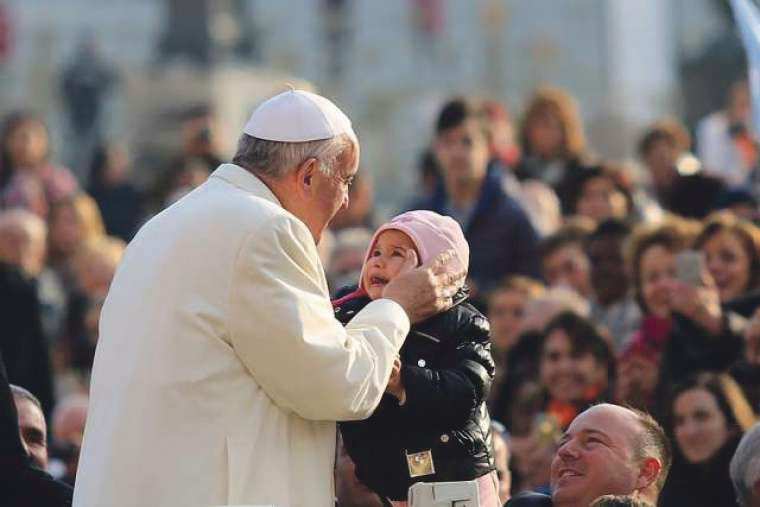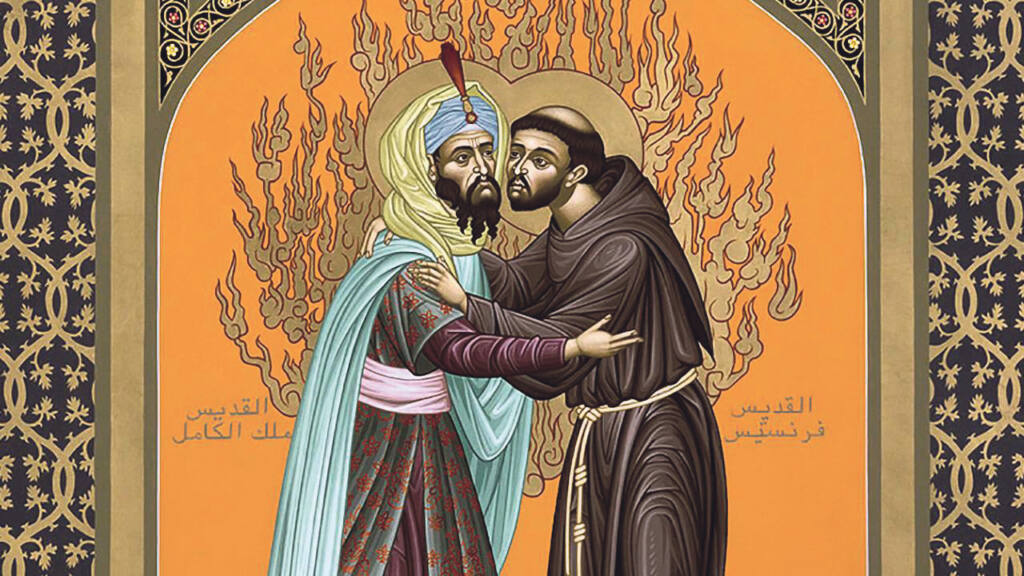WelCom October 2020
‘Ka hanga e ahau taku hāhi ki runga ki tēnei kāmaka’
On Sunday 23 August 2020, 21st Sunday of Ordinary Time, Year A, Bishop Peter Cullinane spoke to parishioners at St Joseph’s Church in Dannevirke. Drawing from the Gospel reading, Matthew 16: 13-20, Bishop Peter honours Pope Francis as St Peter’s successor, and the ‘humanness’ Francis brings from Jesus to his ministry. Bishop Peter’s homily is republished here.
Gospel: Matthew 16:13-20
13 When Jesus came to the region of Caesarea Philippi he put this question to his disciples, ‘Who do people say the Son of man is?’ 14 And they said, ‘Some say John the Baptist, some Elijah, and others Jeremiah or one of the prophets.15 ‘But you,’ he said, ‘who do you say I am?’ 16 Then Simon Peter spoke up and said, ‘You are the Christ, the Son of the living God.’17 Jesus replied, ‘Simon son of Jonah, you are a blessed man! Because it was no human agency that revealed this to you but my Father in heaven. 18 So I now say to you: You are Peter and on this rock I will build my church. And the gates of the underworld can never overpower it.19 I will give you the keys of the kingdom of Heaven: whatever you bind on earth will be bound in heaven; whatever you loose on earth will be loosed in heaven.’ 20 Then he gave the disciples strict orders not to say to anyone that he was the Christ.

Photo: Daniel Ibanez/CNA
The gospel we have just heard features Jesus giving a special ministry to Peter: ‘You are Peter, and on this rock I will build my Church; I give you keys of the kingdom, whatsoever you bind on earth shall be bound in Heaven; whatsoever you loose on earth shall be loosed in Heaven’. From elsewhere in the New Testament we see this in context: the Church ‘is built upon the foundation of the apostles and prophets with Jesus himself as the cornerstone’ (Eph.2:20).
Let us imagine ourselves there with the disciples, standing in awe of the tremendous authority Jesus gave to Peter. But let’s remember also that this gospel was written some years after Peter had died – the Christian community knew that the ministry given to Peter lives on, beyond Peter’s own life-time, in Peter’s successors: today, Pope Francis.
To him we owe the same respect that was due to Peter – not based on any merits of Peter, or of Francis, but based on what Jesus had spoken.
Let us also stand with our grandparents or whoever first taught us to appreciate this treasure of Catholic faith. But we remember too, that just as there are differences between how our grandparents said and did things, and how we do, so too, popes of different generations have different styles – it all belongs to being human.
“Pope Francis knows that it’s through questioning and dialogue and walking the journey together, that people grow to maturity, and don’t get stuck in infantile dependency.”
For centuries we have been used to popes who spoke mainly to give answers. Suddenly, we have a pope who also asks questions! Not about revealed truths, of course, but about human behaviour. Some take fright at this – especially people who look for order, clarity, predictability, and someone to tell them what to do. They think that if a Pope asks questions it suggests uncertainty, or causes ‘confusion’. But no: Pope Francis knows that it’s through questioning and dialogue and walking the journey together, that people grow to maturity, and don’t get stuck in infantile dependency.
Pope Francis has good reason for his different style: over recent decades there has emerged a greater appreciation of the respect due to persons, and to people’s consciences. This requires that people be given the information they need to make informed judgments, and the space they need to freely choose what is good and right – rather than it being simply imposed.
Some of Pope Francis’ critics like to contrast him with Popes John Paul II and Benedict XVI. But they conveniently overlook that Pope Francis is building on what Pope St John Paul II had already taught. It was John Paul who said ‘the Church’s teaching authority is at the service of conscience’; in other words, it upholds the sovereignty of conscience, it doesn’t render conscience superfluous.
“While on the journey, people are not sinning if they are doing the best they can for now, and praying for better.”
It was also Pope John Paul II who taught what he called ‘the law of gradualness’; this means recognising that people’s ability to fully comply with the moral law develops gradually; for some faster, for some more slowly. This is why Pope Francis often speaks of taking people where they ‘are at’ – not starting from where they should be, but from where they are – and accompanying them on the journey to where they should be. And while on the journey, they are not sinning if they doing the best they can for now, and praying for better.
So when Pope Francis asks whether Eucharist is for people not yet fully complying with the moral law – who would if they could – he is not questioning the Church’s teaching, but simply taking account of gradualness in their ability to comply fully, and asking whether Eucharist is only for those who already comply fully, or also for those who are trying to get there.
It is rather Pope Francis’ critics who question, and even reject, Church teachings – especially people who are protecting their own business or ideological interests. Some of them even say: ‘the Church’s job is to save souls; people’s social and economic lives are none of the Church’s business’. Here too, Pope Francis’ teaching is in line with the teaching of his predecessors. His critics are also very selective in what they accept from the social encyclicals of Pope John Paul II and Benedict XVI. Perhaps it is the gospel itself that they need to look at more closely.
When it comes to the tone of their criticisms, sadly, the bitterness, divisiveness, deceptiveness and scapegoating are all tell-tale signs that their agenda are not from the Holy Spirit. There is another spirit at work. The same gospel we heard says the gates of the underworld will not prevail. But they will try! Take this as a sure guide: wherever evil is at work, sooner or later it overreaches, can’t hide its ugly face, and discredits itself. That’s why Pope Francis doesn’t always bother to respond to his critics. But he prays for them. Many are good people, sometimes troubled people, but people in need of compassion.
Today, let us honour Pope Francis by praying for him, and praying with him for those who misrepresent him.
Walking in the footsteps of St Francis of Assisi

In February last year, when Pope Francis made his historic visit to the United Arab Emirates, on the Arabian Peninsular, to meet with Ahmed Mohamed Ahmed al-Tayeb of Egypt to sign the joint statement, The Document on Human Fraternity for World Peace and Living, he was walking in the footsteps of his namesake St Francis of Assisi.
In 1219, in the midst of the disastrous Fifth Crusade, Francis of Assisi, who opposed warfare, decided to sail across the Mediterranean and visit the court of the great Sultan of Egypt, al-Melek-al-Kamil, as a ‘messenger of peace between Christians and Muslims’. He was allowed to go through the enemy lines and he met with the sultan, who was so impressed by Francis that he asked him to stay for a week of religious and theological conversation. The two discussed interfaith conflict, war and the search for peace. The sultan, himself a genuinely religious man, recognised in Francis the same qualities, and was very impressed by his courage in coming so far. Francis found a real friendship with the sultan.
Eight hundred years later in 2019, His Holiness Pope Francis made his own historic Apostolic Journey to the UAE to meet with Ahmed Mohamed Ahmed al-Tayeb, to sign the joint document, which calls for universal peace and to advance a culture of ‘mutual respect and understanding’.
The Document on Human Fraternity for World Peace and Living opens with a series of invocations: the Pope and the Grand Imam speak ‘in the name of God who has created all human beings equal in rights, duties and dignity’, ‘in the name of innocent human life that God has forbidden to kill’, ‘in the name of the poor’, ‘orphans, widows, refugees, exiles…and all victims of wars’ and ‘persecution’. Al-Azhar, together with the Catholic Church, ‘declare the adoption of a culture of dialogue as the path; mutual cooperation as the code of conduct; reciprocal understanding as the method and standard’.
It is because of St Francis of Assisi’s encounter with the Sultan of Egypt, al-Melek-al-Kamil, that the Franciscan order has had an ongoing presence in the Holy Land.
St Francis of Assisi’s feast is 4 October.